Featured 2

Bangladesh media, or what is termed as "mainstream media," "professional media" and so on is in an identity crisis. Though it calls itself by positive and affirmative branding names, there are anxieties galore around its role and identity. Which is the mainstream anyway? Who is pro and who is not? Is the difference between print and online media and social media largely based on payments for service rendered -salaries- and freelance income from the market? No matter what, a tussle is on and how both will survive is a question as the expiry date is on display everywhere.
A global problem, local context
The print media is not only at bay everywhere but is disappearing. The very established ones are surviving but they are dramatically different from what they were from before. Plus they are not expanding. The main expansion is in the social online sector and it makes sense. Access is the key and handling papers are cumbersome when they can be read on devices. It used to be called "new" media once but now it's established and old. What powers the shift and surge is audience preference. And with audience preference comes revenue. It's played by more or less normal rules of market economics.
Our problem is however different from simply adjusting to the rules of technology and economics. The technology may be the same but our economics is poles apart.
Bangladesh media is not market based investment led but funded by investment focused on extra-economic incentives. These are about gaining prestige which ultimately leads to profits in the longer run or providing protection through clout of money on investment already made. Hence investment is about the bolstering of clout in deals, negotiations and transactions with various power lobbies. It's not about which way the money is going and expected returns but expected returns in terms of socio-economic protection.
Hence our media can't be analyzed using a global /Western framework because the structure of the economy is fundamentally different in Bangladesh.
Media in crony capitalism
Almost all the major business houses in Bangladesh have media outlets. Very few of them are as successful as the business houses they serve but they serve the purpose. What is important is the brand they come from and that can translate into adverts if needed. The sudden and complete disappearance of a case involving abetment of suicide disappeared from all media pages because of the clout of the owners. Several crony media houses also got into the fray in the proper spirit of cronyism and safety was earned.
Thus, the media is so dependent on crony capitalism that it's not possible to survive practicing independent media. Backers are not interested in picking fights.
Another example is "sleaze trading". One particular house reported on the doing of one house in its media. The reported media outlet then countered with their story that went against the other house. Soon both quieted down. Thus media provides protection and equilibrium within the crony capitalist world.
Since the most reliable entry into wealth making is connections, everyone has an outlet. However, they process of initiating is by hiring an Editor known to the investor who then hires the rest. Problem is that the money given for hiring staff is almost always inadequate as the demand for jobs is much higher than quality supply. So the staff level goes down with every new venture. It's an uncertain and futureless world where almost all depends on the owner's whim. While the big ones keep going though they very quickly lose their shine and are unable to meet regular staff payments, many smaller ones simply grind to a halt when it doesn't look too profitable in a crony market. The death rate of media in Bangladesh could be higher than that of corona.
The tech factor
Bangladeshis are good at performing low intensity tech tasks but increasingly deficient at the kind of innovation required to keep media consumer friendly. Thus, even big house websites are chaotic and jumbled up, synchronization is low and graphics not enviable. The kind of crowd that is needed to make media attractive doesn't seem to be joining mass media outfits.
There is a small but growing number of tech enabled people in town but the tendency is to go freelance or do startups rather than become media professionals. Thus those who join are not the best in town. And the tech savvy crowd has little interest in local media.
It's therefore not one cause that is causing all the hiccups but several of them coming together. There is increasing competition within the crony capitalist world but that doesn't stretch to the media so a race for quality is not visible. In a country where anyone can be hooked using a smartphone the chances of media - the paper version or their online version-surviving may be up for the most serious challenge of their life.









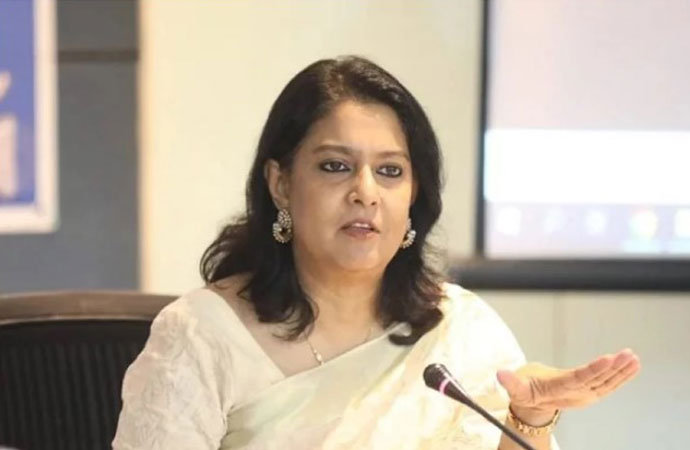
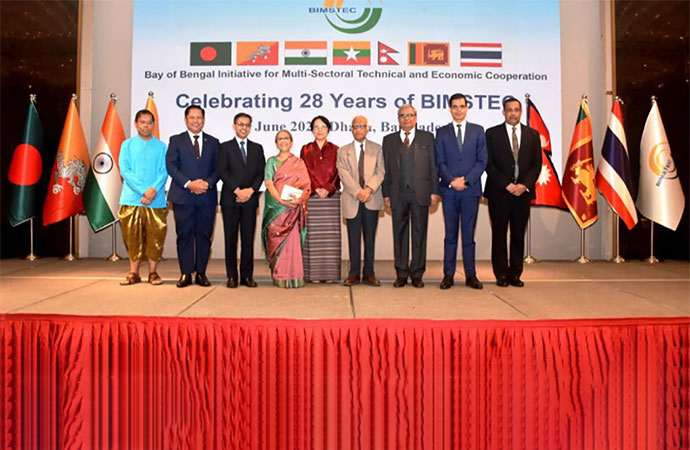








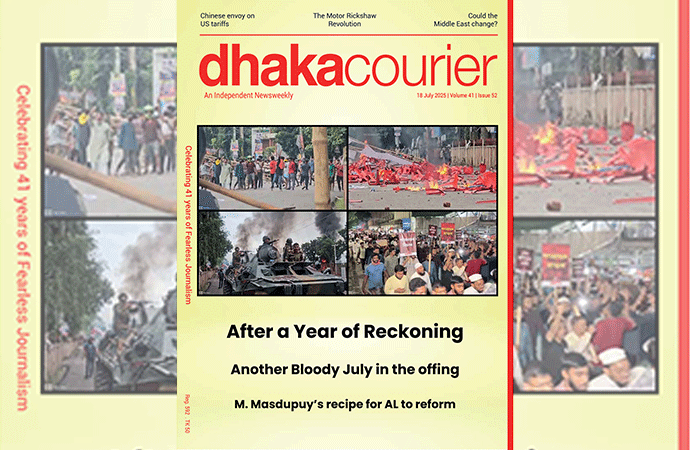
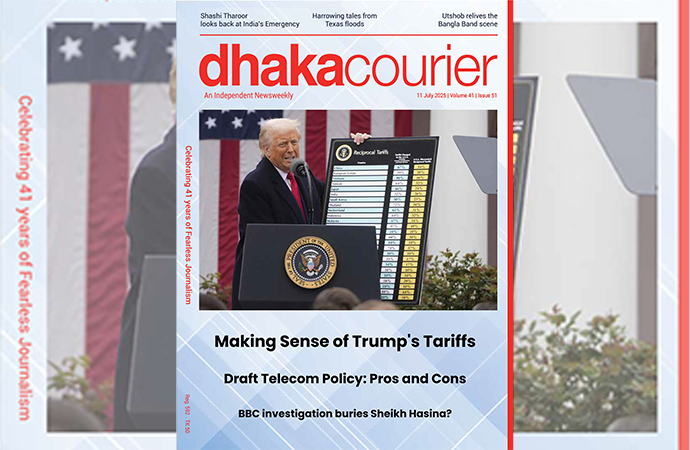
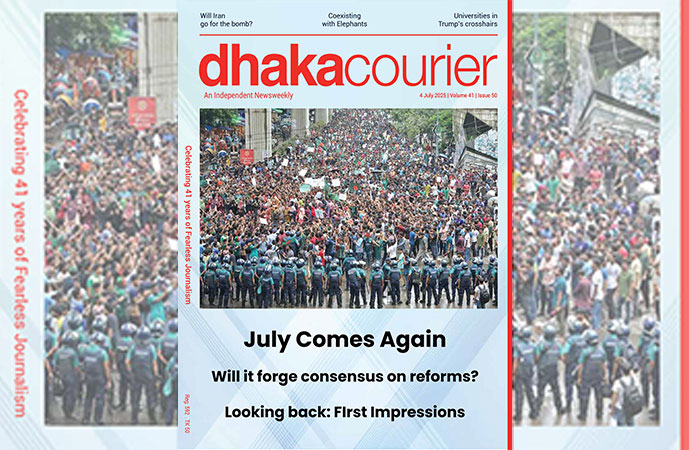
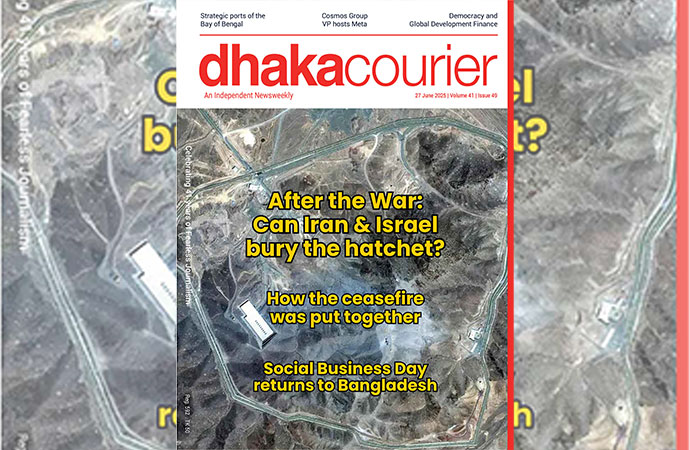
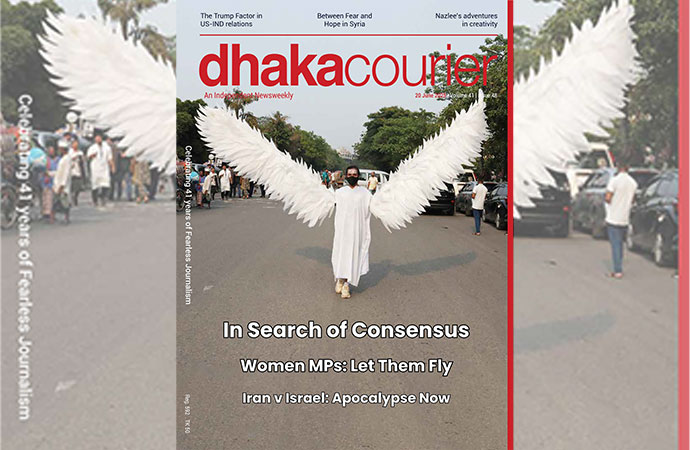
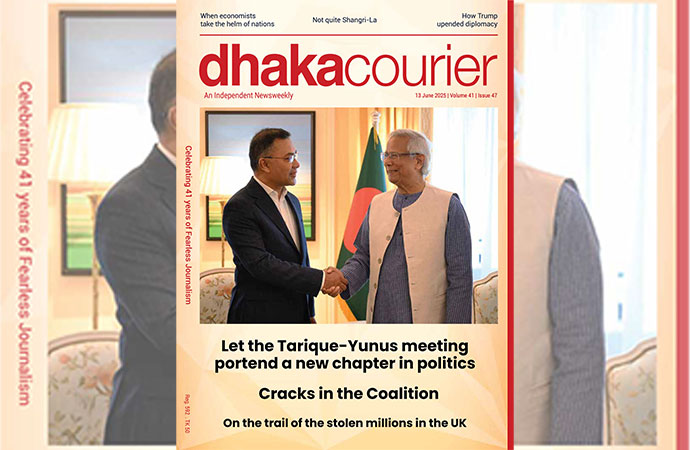
Leave a Comment
Recent Posts
The Northeastern Question
When secessionist movements sprang up across the Eastern European part ...
Trump’s Tariff: How far should ...
Will Bangladesh manage to get a last minute reprieve on its 'Trump tar ...
Rivers, Peaks, and Expressions – My Experience at th ..
What lies behind the alarming spike in violence agai ..
A Himalayan choice
Twenty Palestinians were killed at a food distributi ..